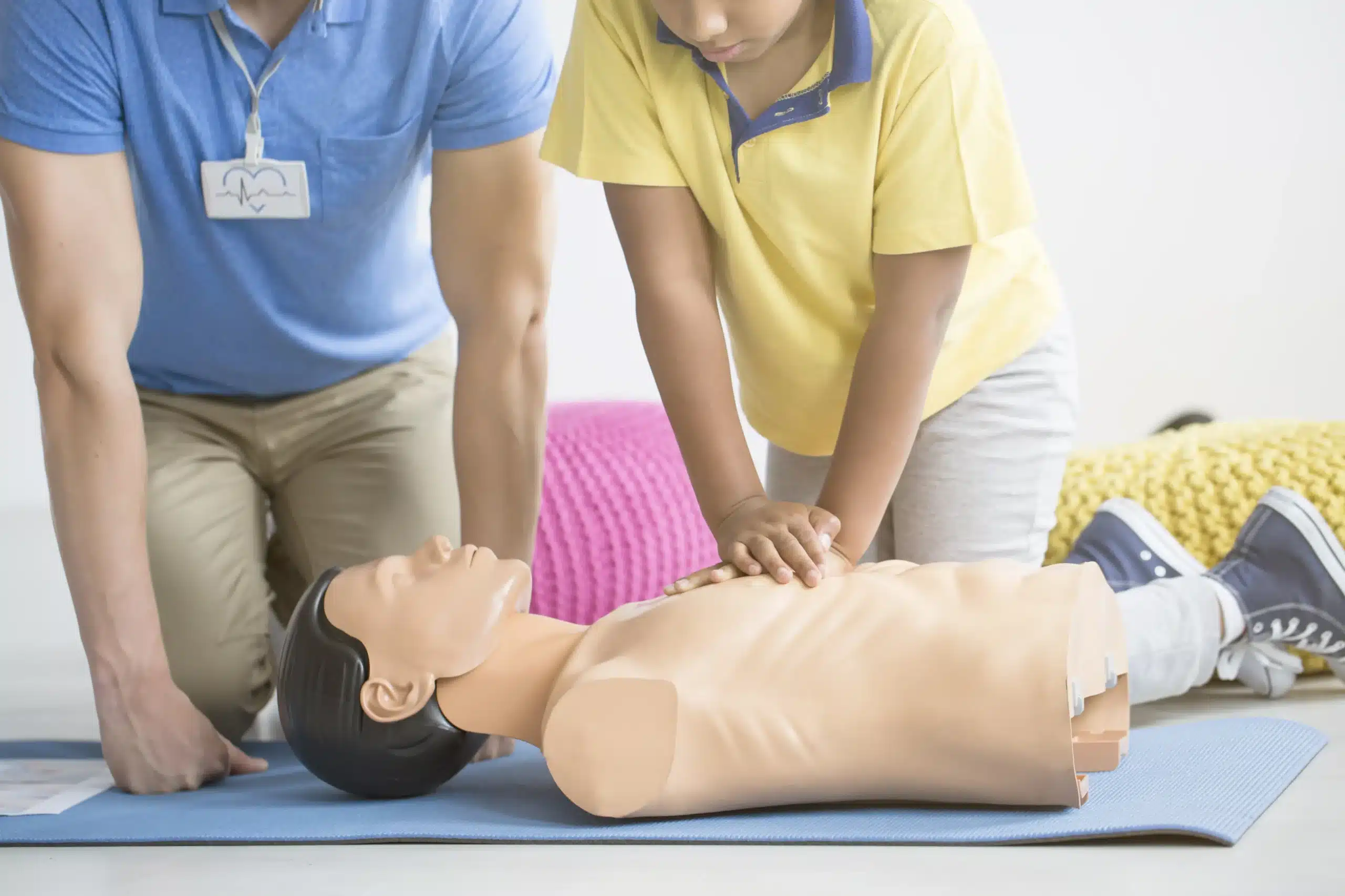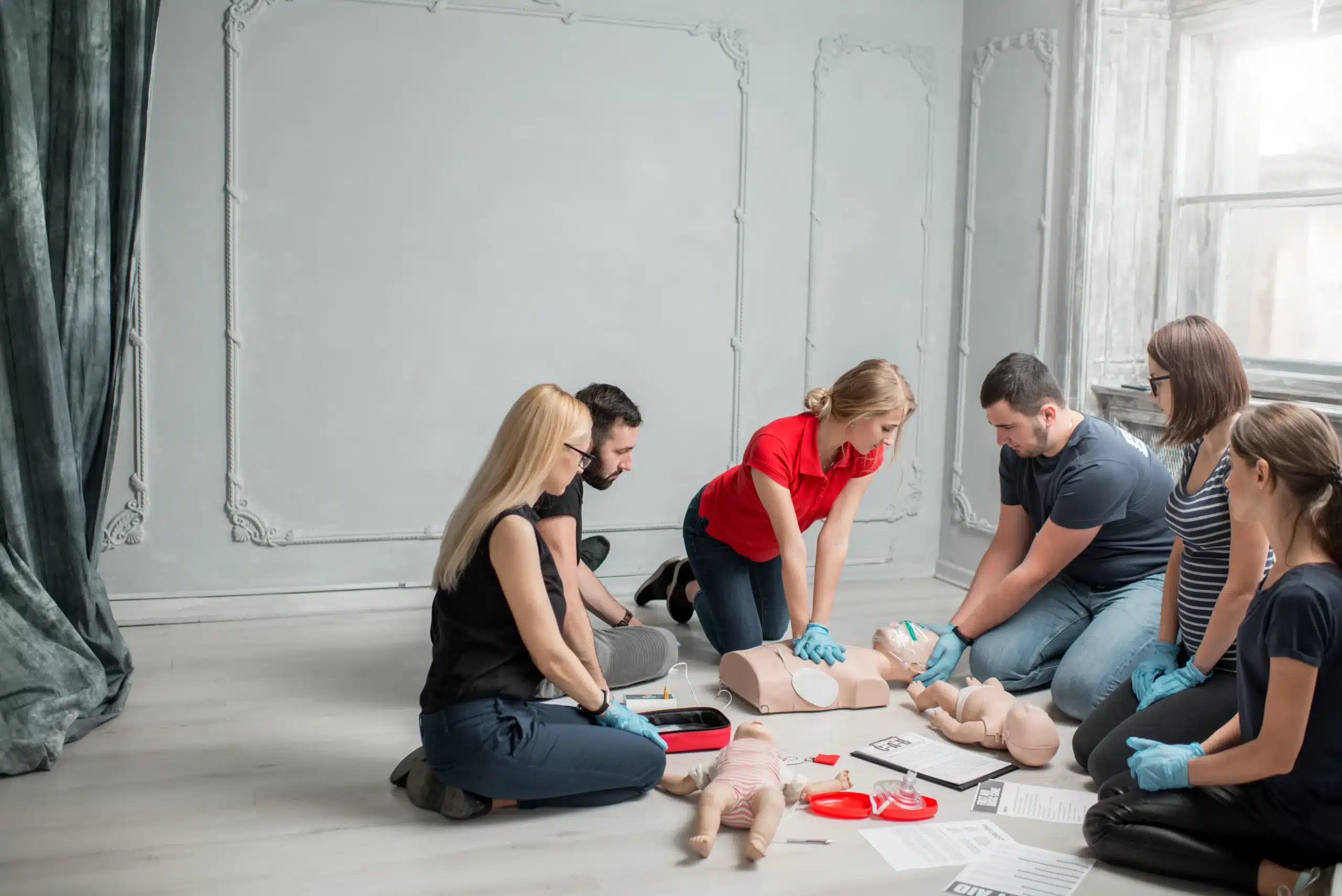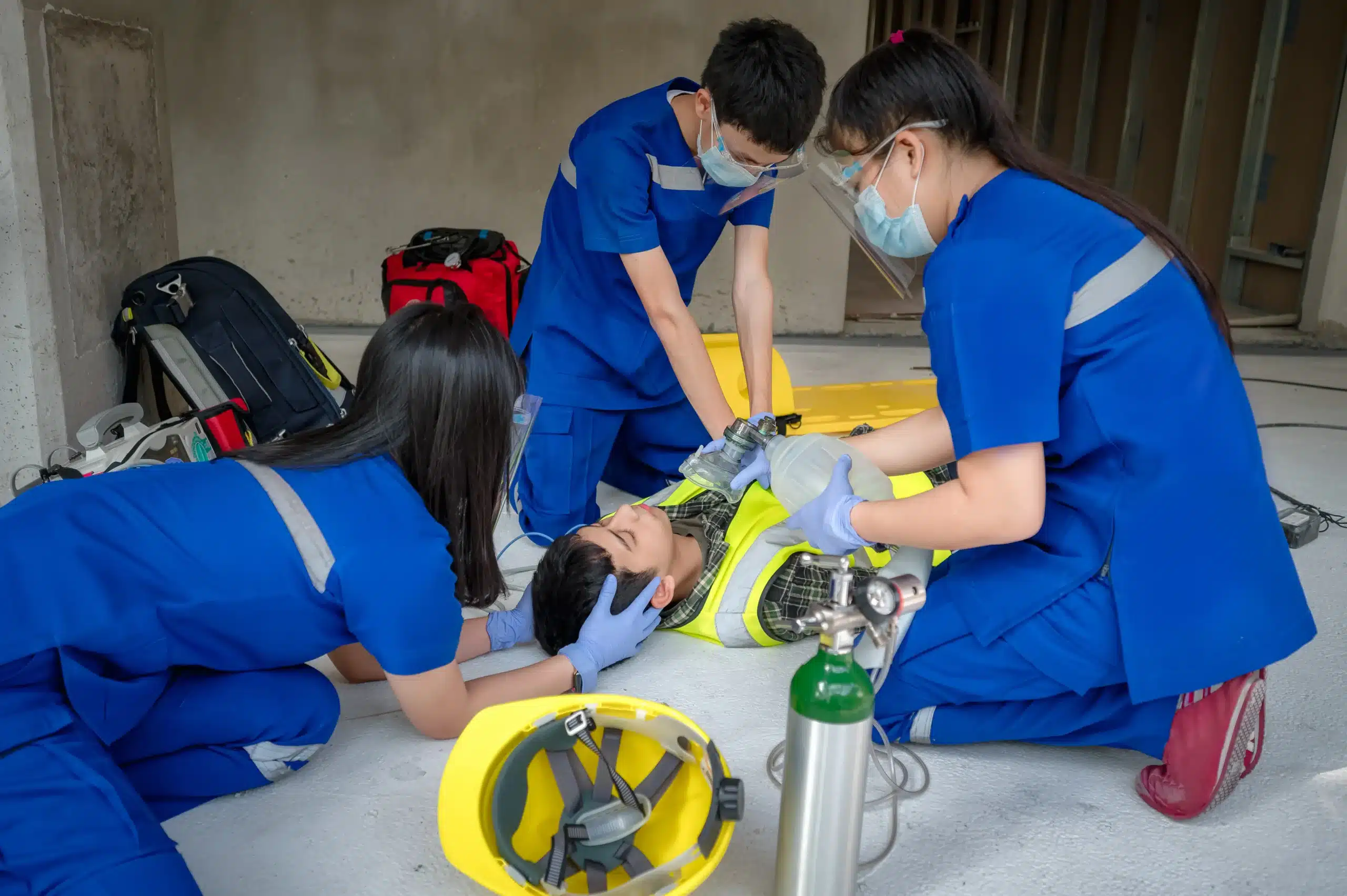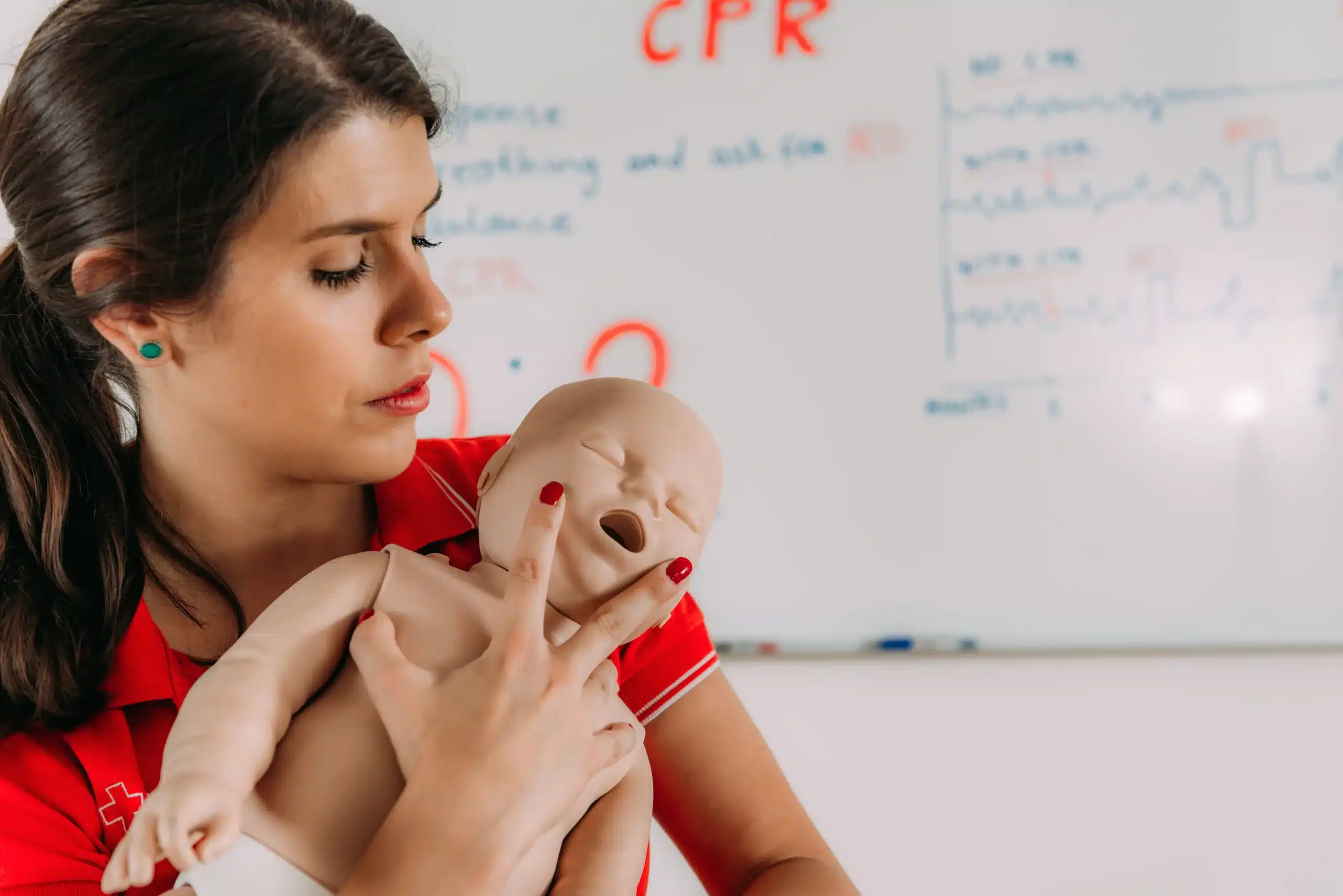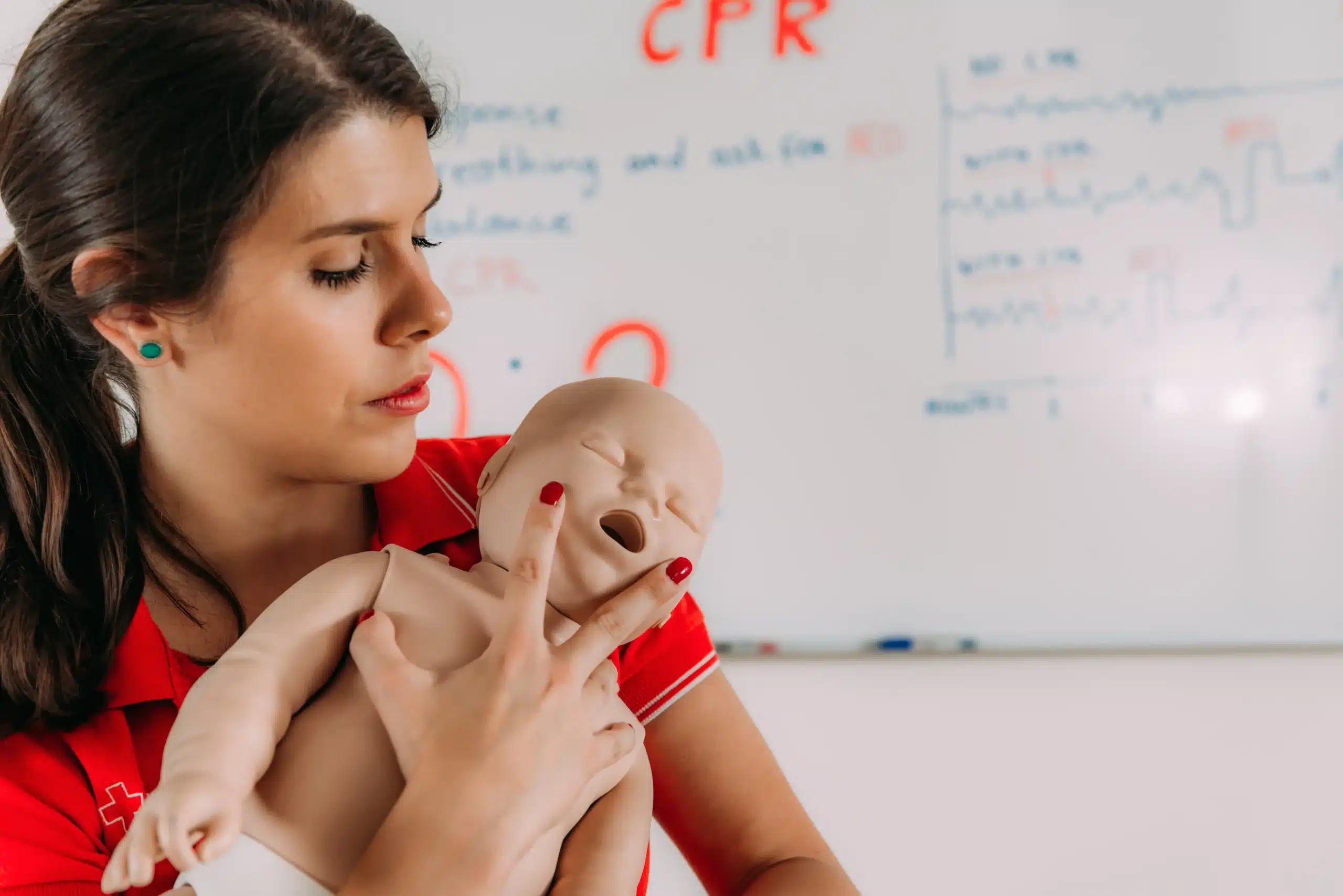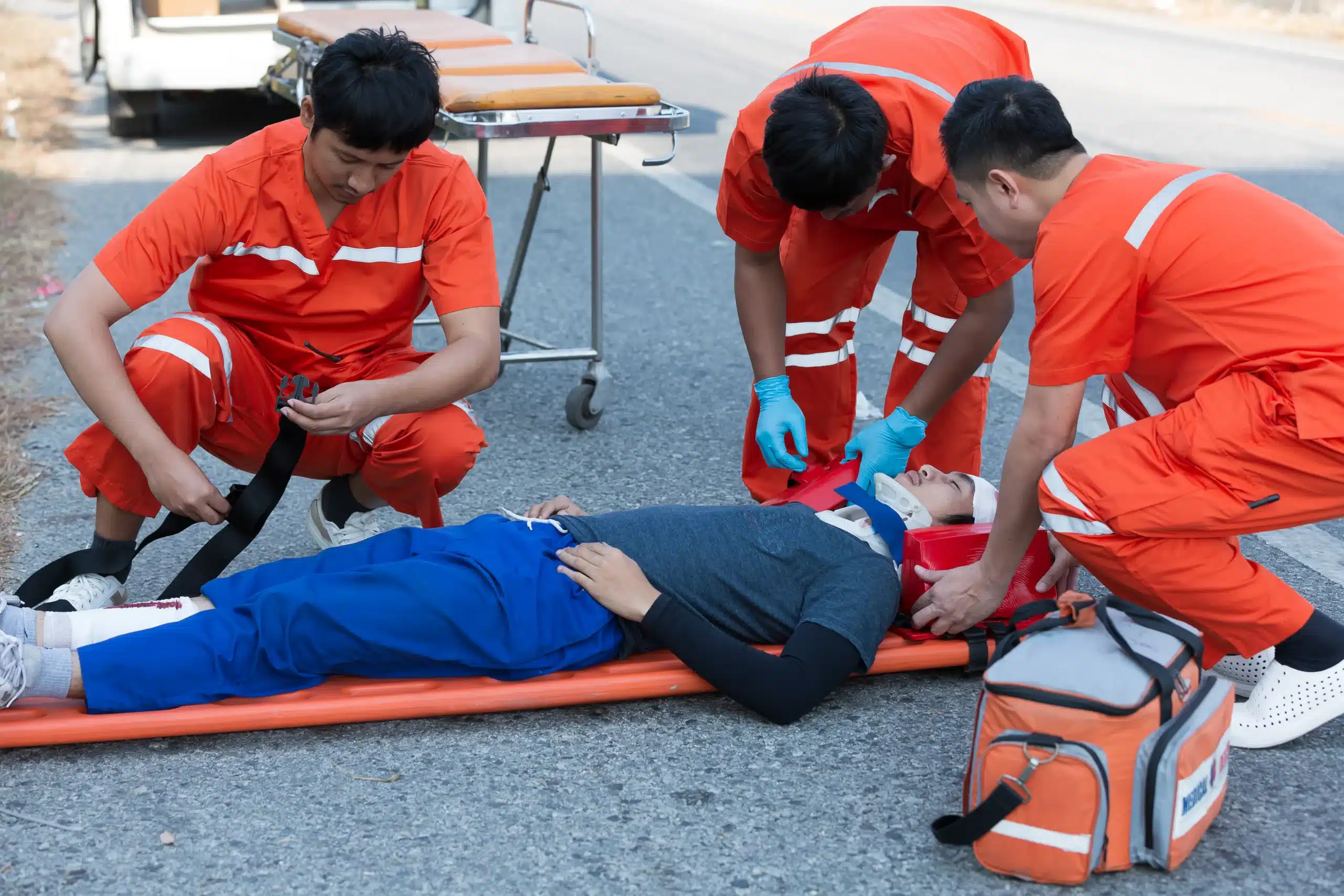As a parent, the thought of an emergency involving my child or someone I love is scary. Knowing CPR would give me the confidence to act quickly and potentially save a life. If you’ve been searching for “CPR certification near me,” you’re in the right place. This guide explores the different types of CPR training available, from basic CPR and First Aid to specialized certifications like BLS, ACLS, and PALS. Whether you’re a healthcare professional, childcare provider, or simply someone who wants to be prepared, we’ll help you find the right CPR certification near me in Carmichael, Rancho Cordova, and Fair Oaks. We’ll also discuss the American Heart Association’s RQI program, a valuable resource for healthcare providers, and provide tips on choosing a reputable training center and managing the costs and renewal process.
Key Takeaways
- Choose the right CPR class for your career: From basic CPR and first aid to specialized certifications like BLS, ACLS, and PALS, find the training that aligns with your professional goals.
- Find a trusted CPR training center near you: Look for credible providers, compare what they offer, and check reviews to ensure you’re getting high-quality instruction.
- Plan for the cost, time commitment, and renewal: CPR courses vary in price and duration. Factor in these practicalities and remember that recertification is key to maintaining your skills.
What are My CPR Certification Options?
Choosing the right CPR certification depends on your specific needs and career goals. Let’s break down the different types of CPR classes and programs available.
CPR Class Types
Carmichael CPR Classes, offered by Safety Training Seminars, provides a variety of courses to meet diverse needs. These include CPR and First Aid certification, along with more specialized courses like Basic Life Support (BLS), Advanced Cardiovascular Life Support (ACLS), Pediatric Advanced Life Support (PALS), Neonatal Resuscitation Program (NRP), and EMSA Child Care Health and Safety. This range ensures that whether you’re a parent, teacher, healthcare provider, or childcare worker, you can find the right training. We also offer a low price guarantee, so you can be confident you’re getting the best value for your CPR training.
Specialized Courses by Profession
Different professions require specific levels of CPR training. For instance, healthcare professionals like doctors and nurses often need ACLS and PALS certification, while childcare providers might require EMSA Child Care Health and Safety training. Our courses cater to various professions, ensuring you receive the appropriate certification for your field. BLS certification is fundamental for many healthcare roles, equipping you with essential skills like CPR, AED use, airway management, and team communication.
American Heart Association RQI Program
For medical and healthcare professionals, the American Heart Association’s Resuscitation Quality Improvement (RQI) program offers a streamlined and efficient path to BLS, ACLS, and PALS certification. Safety Training Seminars is a woman-owned AHA Training Center committed to providing high-quality RQI courses. This program emphasizes continuous quality improvement and ensures you receive your official American Heart Association certification card, valid for two years, upon completion of the course.
Find Reputable CPR Training Near You
Finding the right CPR training involves a little research to ensure you receive high-quality instruction from a credible provider. Here’s what to look for when choosing CPR certification near you:
Check Credentials and Reviews
First, confirm the training center’s affiliation with a nationally recognized organization like the American Heart Association (AHA) or the American Red Cross. These organizations set the standards for CPR training, ensuring your certification is widely accepted. It’s smart to check online reviews and testimonials, too. Positive feedback from past students speaks volumes about the quality of instruction and customer service. Effective marketing is key for CPR businesses, but the real measure of success lies in the training they deliver. Learn more about how CPR businesses market their services on Business Endo.
Local Providers in Carmichael, Rancho Cordova, and Fair Oaks
If you’re in the Carmichael area, you have several convenient options for CPR training. Safety Training Seminars, a woman-owned AHA Training Center, offers various courses, including BLS, ACLS, PALS, CPR, and First Aid. They prioritize convenience with daily classes in Carmichael and over 60 other cities. You can find more information about their courses in this helpful Carmichael CPR guide.
Safety Training Seminars
Safety Training Seminars provides high-quality AHA-certified courses right here in Carmichael, CA. As a woman-owned business, they offer BLS, ACLS, PALS, CPR, and First Aid training, making them a one-stop shop for all your certification needs.
American Red Cross
The American Red Cross is another reputable organization offering CPR certification. They stress the importance of bystander intervention and how CPR can dramatically improve survival rates during cardiac arrest. Their website provides resources and information on CPR training.
American Heart Association
The American Heart Association sets the guidelines followed by many CPR training organizations, including both the AHA and Red Cross. You can learn more about the differences between AHA and Red Cross certifications on this comparison site. They offer a range of courses, including online, in-person, and blended learning options.
Local Community Colleges
Consider checking with local community colleges for CPR certification courses. These institutions often provide affordable training options, especially for students pursuing careers in healthcare. For those in Carmichael, explore the various educational paths available, from medical and EMT programs to dental schools, detailed on the Carmichael CPR Classes website. They often offer student discounts on CPR training.
Cost, Time, and Renewal: What to Expect
So you’re ready to get CPR certified—fantastic! Now, let’s talk about the practicalities: cost, time commitment, and how to keep your certification current. Understanding these factors will help you plan and budget accordingly.
Typical CPR Course Costs
CPR course fees vary depending on the provider, location, and type of certification. Basic CPR/AED/First Aid certification typically ranges from $25 to $75. More specialized certifications, such as BLS for Healthcare Providers, might cost a bit more. For a good comparison of local pricing, check out CPR Test Center’s pricing page as a reference. Remember to check with your chosen provider for their specific pricing.
Discounts and Promotions
Keep an eye out for discounts! Many training centers offer promotions, especially for group bookings or at certain times of the year. A quick search can often uncover deals and discounts on CPR and First Aid certification courses. Check with local providers like Safety Training Seminars for any ongoing discounts.
Course Duration
How long does it take to get CPR certified? Most basic CPR courses can be completed in a single day, often lasting between four and six hours. More advanced courses, like ACLS or PALS, may require additional time. Safety Training Seminars offers a variety of American Heart Association courses designed to fit busy schedules.
Certification Validity and Renewal
CPR certifications are typically valid for two years. After this period, you’ll need to renew your certification to stay current with the latest guidelines and techniques. This ensures you’re always prepared to provide effective assistance. Plan to recertify before your current certification expires to avoid any gaps in your qualifications. American Heart Association certifications generally follow this two-year renewal cycle.
Choose the Right Training Format
CPR and first-aid training are essential life skills. Finding the right course format is the first step. Let’s explore the pros and cons of in-person, online, and blended learning to help you decide what fits your lifestyle.
In-Person Training Benefits
In-person CPR training offers a hands-on learning experience with a certified instructor. This format excels in providing personalized feedback and allows you to practice skills in a real-time setting. For those who thrive in interactive environments and appreciate direct guidance, in-person training is an excellent choice. It also allows for immediate clarification on any questions or concerns. The American Red Cross highlights the value of this direct interaction with instructors.
Online Learning Advantages
Online courses offer unparalleled flexibility and self-paced learning. Busy schedules are no longer a barrier, as you can complete the coursework at your own speed and convenience, often from the comfort of your home. The Red Cross points out this advantage, making online learning a great option for those who prefer independent study and need to fit training around existing commitments. However, remember that online-only courses might not meet all workplace requirements, so check with your employer.
Blended Learning Options
Blended learning combines the best of both worlds. You’ll complete the theoretical coursework online at your own pace, then attend an in-person skills session. This format, offered by providers like Carmichael CPR Classes, offers the flexibility of online learning with the hands-on practice and feedback of in-person instruction. Blended learning is a great solution for those who want a flexible schedule but also value the practical application of skills.
Select the Best Format
Choosing the right training format depends on your learning style, schedule, and workplace requirements. Consider what environment you learn best in and how much time you can realistically dedicate to training. If you prefer hands-on learning and immediate feedback, in-person training might be ideal. If you need flexibility, explore online or blended learning options. Researching different providers, like those offering CPR classes, can help you find the perfect fit.
Get CPR Certified: Your Action Plan
Ready to get CPR certified? It’s easier than you think. Here’s your step-by-step action plan:
Research Local Options
Start by researching CPR training providers in your area. Look for reputable organizations like Safety Training Seminars, a woman-owned American Heart Association Training Center offering various courses, including BLS, ACLS, PALS, CPR, and First Aid. They prioritize convenience, with daily classes in Carmichael and over 60 other cities. Checking online reviews can also give you a sense of past students’ experiences. Consider factors like class schedules, location, and course content to find the best fit. If you’re in Carmichael, Rancho Cordova, or Fair Oaks, see what local providers offer.
Schedule Your Course
Once you’ve found a few promising options, compare their course schedules. Safety Training Seminars offers AHA BLS, ACLS, PALS, CPR, and First-aid certification courses seven days a week, making it easier to fit training into your busy schedule. Look for a provider that offers similar flexibility. Don’t wait until the last minute; scheduling your course in advance secures your spot.
Prepare for Certification
Before class, familiarize yourself with the course material. If you’re pursuing BLS, ACLS, or PALS certification, the American Heart Association RQI program is a popular and efficient way to prepare. This program emphasizes modern resuscitation techniques and provides the knowledge you need to succeed in your course and in a real-life emergency.
Maintain Your Skills
CPR certification isn’t a one-time thing. To stay sharp and confident, regular practice and recertification are key. Treat your initial certification as the first step in a lifelong learning process. Stay updated on any changes in CPR guidelines and best practices. Consider refresher courses or practice sessions to keep your skills fresh, ensuring you’re always prepared to provide effective assistance when it matters most.
Related Articles
- RQI in Carmichael: Your Complete Guide – Carmichael CPR Classes
- CPR Courses in Carmichael: Your Certification Guide – Carmichael CPR Classes
- RQI Classes in Carmichael, CA – Carmichael CPR Classes
- Online CPR Classes in Carmichael: Your Guide – Carmichael CPR Classes
Frequently Asked Questions
How do I choose the right CPR class for me? The best CPR class depends on your individual needs. If you’re a healthcare provider, you’ll likely need a more advanced certification like BLS, ACLS, or PALS. If you’re a parent, teacher, or general community member, a basic CPR and First Aid certification might be sufficient. Consider your current job requirements and future career goals when making your decision. Check out the linked resources in the blog post to explore different certification levels.
What does the American Heart Association RQI program entail? The RQI program is a great option for healthcare professionals seeking BLS, ACLS, and PALS certification. It focuses on high-quality resuscitation skills and uses a blended learning approach. You’ll work through online modules at your own pace and then complete an in-person skills assessment. This flexible format makes it easier to fit training into a busy schedule.
How much does CPR certification cost? Costs vary depending on the level of certification and the training provider. Basic CPR classes are generally more affordable than specialized certifications like ACLS. Look for providers who offer discounts, especially for groups or students. The blog post includes links to resources that can help you compare pricing in your area.
What’s the difference between online, in-person, and blended learning CPR courses? In-person classes offer hands-on training and direct interaction with an instructor. Online courses provide flexibility and self-paced learning. Blended learning combines online coursework with an in-person skills session. The best format for you depends on your learning style and schedule. If you prefer a structured environment and hands-on practice, in-person training might be a good fit. If you need more flexibility, consider online or blended learning.
How often do I need to renew my CPR certification? Most CPR certifications are valid for two years. It’s important to renew your certification before it expires to maintain your skills and ensure you’re up-to-date on the latest guidelines. Check with your certifying organization or training provider for specific renewal requirements.



